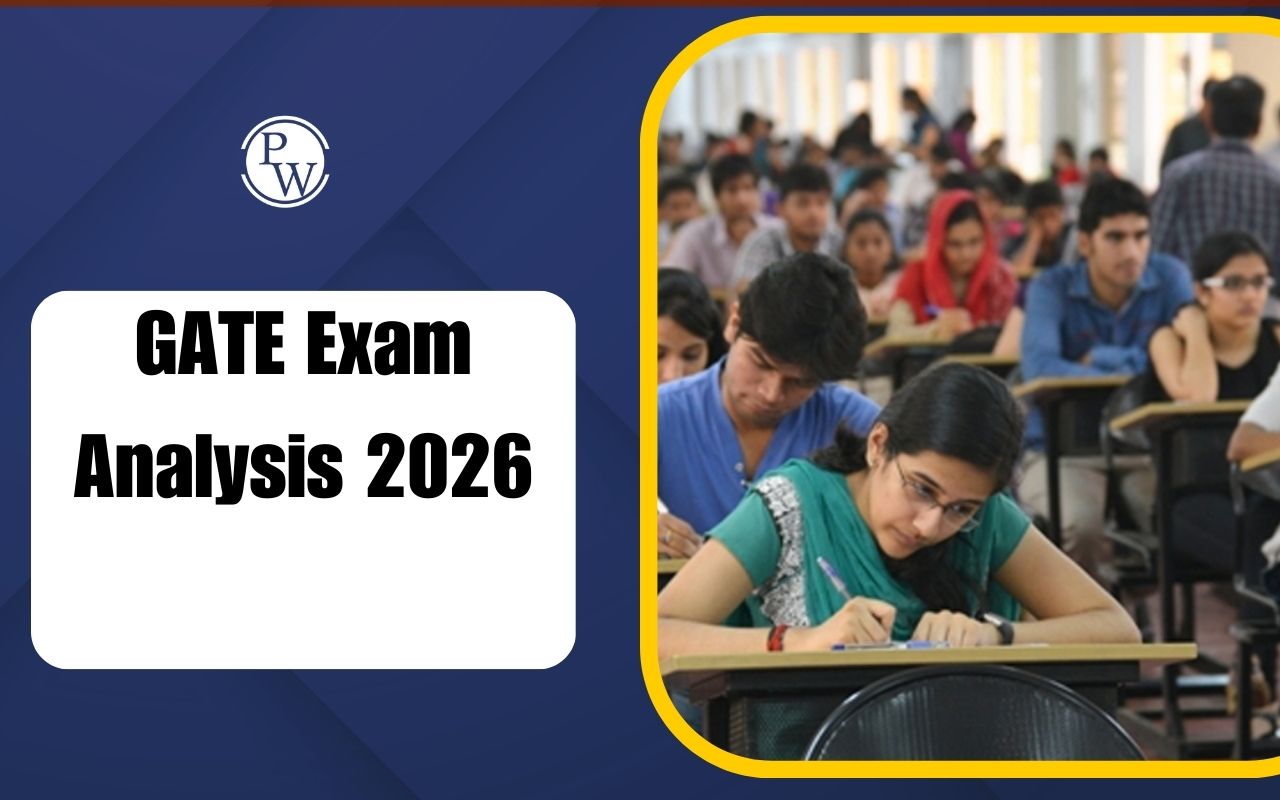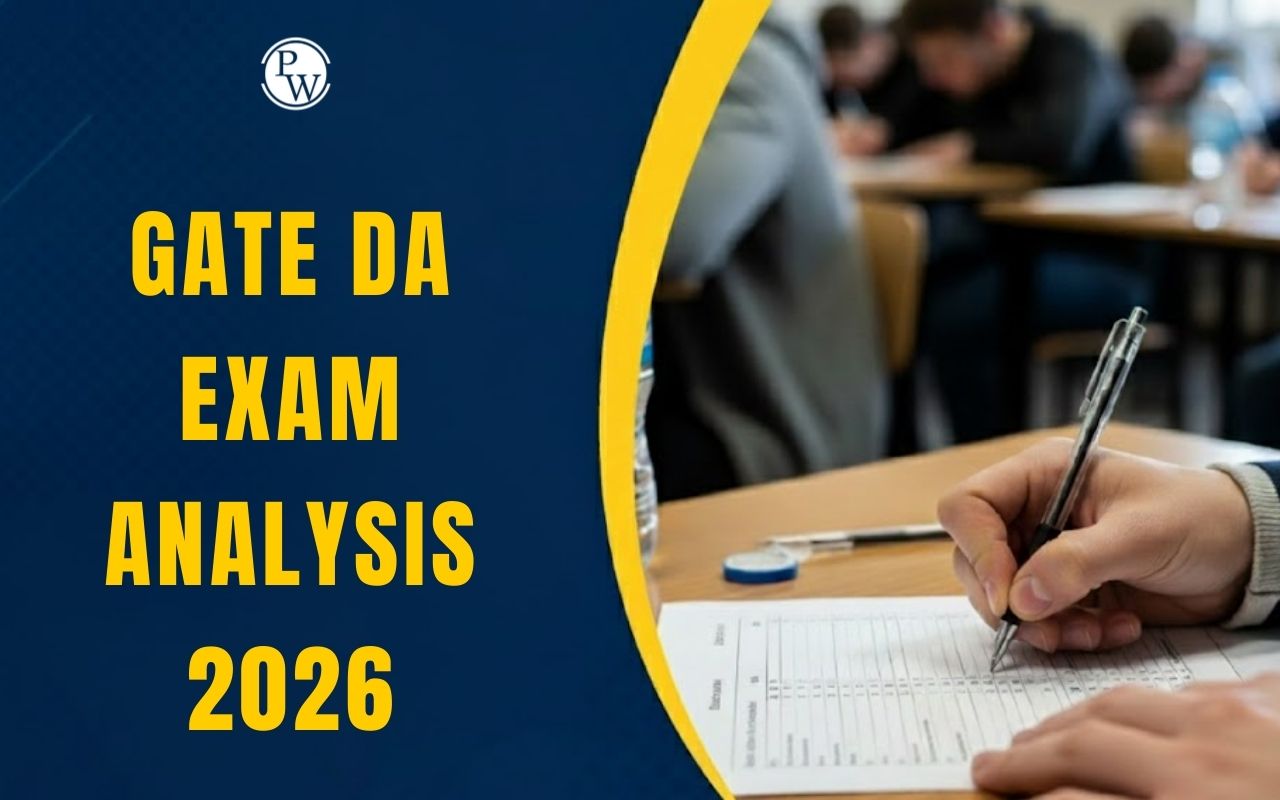
Electrical Engineering is a field of engineering focused on the practical application of electricity, electronics, and electromagnetism. Trained electrical engineers are responsible for designing electric circuits and various electrical equipment. Electrical Engineers are often found working in a wide range of settings, from large-scale power plants to small hardware companies. Their work involves the design, manufacturing, and operation of power plants, industrial machinery, electrical motors, computer chips, and ignition systems used in automobiles, aircraft, spacecraft, and various engines.
What is Electrical Engineering?
Electrical Engineering is a branch of engineering that deals with the study, design, and application of electrical systems, electronics, and electromagnetism. It covers a wide range of areas, including the generation, distribution, and utilization of electrical power, as well as the development of electronic devices and systems.
Aspirants who aim to choose Electrical Engineering after 10+2 can pursue undergraduate degrees like B.Tech. and B.E., among others, from top colleges after clearing entrance exams like JEE Mains and Advanced.
Furthermore, after graduation, applicants can get admitted to the top IITs and NITs to pursue postgraduate courses in Electrical Engineering by qualifying exams like GATE , etc.
Also Read: GATE Electrical Engineering Exam 2024
Electrical Engineering Overview
Electrical Engineering includes a diverse set of sub-disciplines, including acoustics, speech, signal processing, electromagnetic compatibility, automotive technology, geoscience and remote sensing, laser and electro-optics, robotics, ultrasonics, ferroelectrics, and frequency control. Check out the Electrical Engineering Overview in the table below.
|
Electrical Engineering Overview |
|
| Particulars | Details |
| Courses | B. Tech, B. E, M. Tech, PhD, Integrated B. Tech and M. Tech |
| Electrical Engineering Eligibility | Diploma: Should have passed Class 10th Undergraduate: Class 10+2 along with entrance examination Post Graduate: B. Tech + Valid GATE Score Card Doctorate: M. Tech |
| Electrical Engineering Course Duration | Diploma: 3 years Undergraduate: 4 years Post Graduate: 2 years PhD: 3 to 6 years |
| Examination Type | Semester-Type |
| Electrical Engineering Average Course Fee | INR 60,000 to 10 lakh |
| Top Colleges | IIT Bombay, IIT Delhi, VIT Vellore, IIT Madras, and DTU |
| Average Starting Salary | INR 5 to 10 lakh Per Annum |
| Job Positions | Broadcast Engineer, Nuclear Engineer, Systems Analyst |
| Entrance Exams | GATE , JEE Main, SRMJEEE, CUCET, Etc |
| Top Recruiting Companies | Alstom India Limited, Schneider Electric, Microtek, Siemens, Crompton Greaves, and Adani Power Limited |
Electrical Engineering- Why Should You Choose?
Electrical Engineering dives into the mathematical and physical aspects of electricity and electromagnetics, preparing students to understand power generation and the intricate components of electrical devices. This field also prepares professionals to adeptly manage and create expansive electrical systems across a wide array of engineering disciplines.
Who is Eligible to Pursue Electrical Engineering?
Electrical Engineering is open to every student who has successfully completed their 10+2 classes with a science background and has included Mathematics in their senior secondary level syllabus. These candidates have the opportunity to pursue a B.Tech in Electrical Engineering. Upon completing their B. Tech, they can further their education by taking the GATE exam, which can then lead to the pursuit of an M.Tech in Electrical Engineering.
Suggested Read: GATE Electrical Previous Year Question Papers PDF Download
Electrical Engineering Eligibility Criteria
Candidates interested in pursuing Electrical Engineering have multiple educational levels to choose from, including diploma, undergraduate, postgraduate, and doctorate programs. Check out the Electrical Engineering eligibility criteria for each level in the table outlined below.
|
Electrical Engineering Eligibility Criteria |
|
| Course | Eligibility Criteria |
| Diploma | Successful completion of Class 10th with a minimum of 50% marks, along with Diploma Entrance Exam |
| Undergraduate | 10+2 pass with Physics, Chemistry, and Mathematics (PCM) or Physics, Chemistry, Mathematics, and Biology (PCMB) subjects, achieving a minimum aggregate of 50% from a recognized school or university, or its equivalent |
| Postgraduate | A B.Tech degree in Electrical Engineering is a must for pursuing postgraduate courses. |
| Doctorate | An M.Tech degree in Electrical Engineering is a must for pursuing Doctorate courses. |
Electrical Engineering Top Entrance Exams
Electrical engineering entrance exams are standardized tests that candidates must take in order to gain admission to Electrical Engineering programs at various educational institutions, particularly top colleges and universities.
Some of the common Electrical Engineering entrance exams are:
- Joint Entrance Examination (JEE) Main: In India, JEE Main is a widely recognized entrance exam for undergraduate engineering programs, including electrical engineering.
- Graduate Aptitude Test in Engineering (GATE): GATE is an entrance exam in India for admission to postgraduate programs in engineering, including M.Tech in Electrical Engineering.
Read more about the GATE examination here:
| GATE 2024 | GATE Previous Year Question Paper |
| GATE Exam Pattern | GATE Syllabus |
| GATE COAP (COMMON OFFER ACCEPTANCE PORTAL ) | GATE 2024 FAQs |
| GATE Exam Date 2024 | GATE 2024 Login |
Apart from these two, there are various other entrance exams for admitting students into the Electrical Engineering course, such as TS EAMCET, APEAMCET, MET, and JEE Advanced, among others.
Electrical Engineering Syllabus Overview
Electrical Engineering is available for undergraduate (UG), postgraduate (PG), and doctoral studies. The Electrical Engineering Syllabus is structured to offer candidates a comprehensive educational experience, encompassing both core and elective subjects, as well as hands-on practical training through industrial internships and laboratory experiments. Check out the subjects included in the B. Tech Electrical Engineering program in the table below:\
|
Electrical Engineering Syllabus Overview |
|
| Semester | Subjects |
| Semester 1 | Mathematics- I, Mechanics/English for communication, Electrical Technology/Introduction to Programming and Data Structures, Introduction to Manufacturing Processes |
| Semester 2 | Mathematics- II, Elements of Electrical Engineering, Electronic components and devices, Basics of IT |
| Semester 3 | Introduction to Material Science and Engineering, Introduction to BioScience and Technology, Signals and Systems, and Introduction to Electronics Lab |
| Semester 4 | Introduction to Signal Processing/Communication Systems, Environmental Science Technology and Management, Network Theory, and Digital Electronic Circuits |
| Semester 5 | Biomedical Systems, Electromagnetic Waves and Radiating Systems, Digital Communication, Microprocessors, and Microcontrollers |
| Semester 6 | Satellite Communication Engineering, Digital Signal Processing, Control Systems, and VLSI Design |
| Semester 7 | Environment and Energy Studies, Thermal and Hydraulic Prime Movers, Fundamentals of Electrical Power System, Analysis of Electrical Power System, Power System Operation and Control |
| Semester 8 | Electrical Workshop Practices, Electrical Engineering Materials, Fundamentals of Power Electronics, Power Electronic Converters, and Electrical Machine Design |
For Electrical Engineering M.Tech programs through GATE, check the complete syllabus here: GATE EE Syllabus 2024 PDF, GATE EE Subject Wise Weightage
Electrical Engineering Top Colleges List
The Indian Institutes of Technology (IITs) and several state or central universities are among the best colleges for pursuing an array of Electrical Engineering courses. The top Electrical Engineering government and private colleges in this category are:
|
Electrical Engineering Top Colleges |
|
| Government Colleges | Private Colleges |
|
|
Electrical Engineering Career Scope
Electrical Engineering extends beyond wires and circuits, finding applications in diverse fields like telecommunications, IT, navigation, railways, automobiles, architecture, aerospace, and defense. Electrical Engineers are essential in power generation and transmission (Power Engineers) and cable design and maintenance (Telecommunication Engineers).
Electrical Engineers design and operate power plants, improve electrical power utilization, and calculate manufacturing and construction costs. Starting salaries for these engineers typically begin at INR 4 lakh or more per annum. Check out the Electrical Engineering job profile outlined below.
|
Electrical Engineering Career Scope |
||
| Job Profile | Key Responsibilities of the Electrical Engineers | Average Annual Salary (INR) |
| Electrical Engineer | Working on communication systems, electronics, and power generation projects. | 6 to 9 Lakhs Per Annum |
| Electronics Engineer | Designing gadgets, PCBs, and circuits for various applications, including consumer electronics and medical equipment. | 7 to 9 Lakhs Per Annum |
| Instrumentation Engineer | Ensuring precise data gathering and control in sectors such as manufacturing, process control, and automation. | 7 to 10 Lakhs Per Annum |
| Power Electronics Engineer | Specializing in power electronics and creating efficient electronic systems for motor drives, inverters, and converters. | 8 to 10 Lakhs Per Annum |
| Embedded Systems Engineer | Developing software and hardware solutions for IoT devices, automotive systems, medical equipment, and specialized computer systems | 8 to 10 Lakhs Per Annum |
Electrical Engineering Top Recruiters
Prospective students interested in pursuing undergraduate and postgraduate courses in Electrical Engineering can explore the leading companies that typically hire Electrical Engineers for a variety of roles within their organizations, as outlined below.
- Bharat Heavy Electricals Limited (BHEL)
- Siemens
- ABB India Limited
- Havells India Limited
- Adani Power Limited
- Crompton Greaves
- Jindal Steel & Power Limited
- Bajaj Electricals Limited
- Alstom India Limited
- General Electric (GE)
- Larsen & Toubro (L&T)
- Tata Electric Companies
- Philips
- Gujarat Industries Power Company Limited
- Wipro
- Kirloskar Group
- Sterling
- Schneider Electric
- EMCO Limited
- HBM Power System
To prepare effectively for the GATE Electrical Engineering, check out the B est Online Courses in Electrical Engineering offered by Physics Wallah!
Electrical Engineering FAQs
What does Electrical Engineering mean?
Can I pursue a PhD in Electrical Engineering after completing a B.Tech?
Do Electrical Engineering jobs offer a competitive salary?
What job opportunities can one expect after graduating in Electrical Engineering?
How can I join IIT for an M.Tech in Electrical Engineering?










